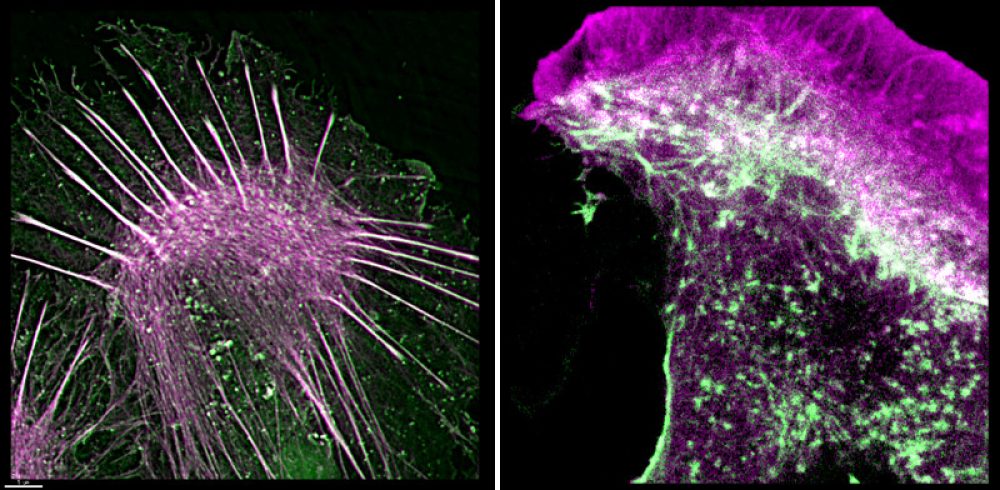The University of Leeds team has developed a new way to see inside individual cells and study how they move and operate inside the human body, giving researchers extra insight and tools to tackle cancers and other diseases.
The scientists are using a lab-made protein called Affirmer, which binds to the F-actin protein, offering them the opportunity to see how the cells move and change. This is an important step, as it can help scientists develop chemical compounds to target them, over time becoming new drug candidates.
“The new use for the Affimers we’ve isolated has created a version which recognises and binds to the F-actin protein, which forms part of a dense ‘wiring system’ of filaments within cells, to give them their structure and assists with their movement and division,” said Ruth Hughes, a Research Fellow at the University, which co-led the research. “The Affimers carry a biological label which lights up under a microscope to help us see the F-actin with greater accuracy than previously possible with antibodies.”
In addition to the better accuracy, the small size of the Affirmers has made it possible for it to bind right into the dense actin network in living cells, enabling scientists to watch movement within the cell.
“These Affimers provide a new tool for live cell imaging and reducing the use of animals in research,” said Michelle Peckham, Professor of Cell Biology at the University’s Astbury Centre for Structural Molecular Biology. “Being able to see the F-actin in motion could enable proteins which bind to the actin and regulate its movement to be studied in greater depth; these interactions have been linked to a wide range of diseases including cancer, neurological disorders and cardiomyopathies.”
Researchers agree that a further development of the Affirmers could be useful in diagnostic assays, as well as a wide range of research areas such as cancer and heart diseases. Affimer technology was highly commended in the National Council for Replacement, Refinement and Reduction of Animals in Research’s 2017 awards and its research is available to academics outside the University and to business and industry via the University’s new innovation centre, Nexus.
















